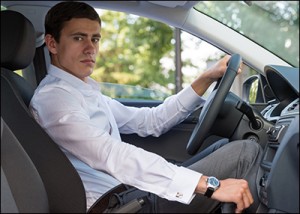Congress Presses Uber, Lyft on Driver Background Checks
By Matthew Startup, Marketing –

Members of Congress express concern over the safety of ride-sharing services like Uber and encourage more comprehensive background checks.
Riding-sharing companies like Uber have been under fire lately in the media, and now they’re starting to get heat from the government. A few members of Congress sent the CEOs of three major ride-sharing companies — Uber, Lyft and Sidecar — a letter expressing their concern for the safety of their clients.
Should Congress Get Involved?
People may disagree on whether the government should be telling firms how to do their business. Either way, those companies should be worried about the public viewing their services as unsafe.
In the letter, the members from Congress want these ride-sharing companies to do more extensive background checks to ensure the safety of their clients. In an article on TechCrunch, Noah Theran from the Internet Association — a lobbying group for these types of companies — is quoted saying, “Safety is a top priority for ride-sharing platforms and is built into the service. Ride-sharing platforms conduct extensive background checks and also feature end-to-end GPS tracking of rides along with a two-way ratings system that provides safety and accountability to both riders and drivers.”
Safer Than the Competition?
These ride-sharing companies claim that this mode of transportation isn’t perfect, but is actually safer than other modes of transportation. Some of these newer companies are providing information on the person who is picking the customer up before the driver arrives. People might feel safer seeing a picture of the driver first and knowing a little about their background.
A Cheaper, More Effective Way to Screen
Converus’ EyeDetect® provides a painless and non-intrusive lie detection test that examines an individual’s pupil dilation, among other characteristics of the eye. The suspect undergoes an examination where he/she answers true or false questions for 30-40 minutes on a computer, during which their eye behavior is being measured. Results are calculate, encrypted and made securely available in near real-time via the cloud. In countries where lie detection tests are allowed, this technology may prove very useful for properly screening drivers in ride-sharing companies.
This new technology has been shown to be 85 percent accurate – which is far more accurate than relying on others who may have biased perception. All results are stored safely and securely, rendering the test incorruptible and fair for all reputations involved.

